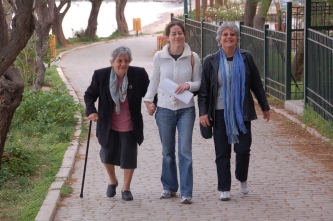Physical activity, nutritional guidance, cognitive training, social activities and management of heart health
Physical activity, nutritional guidance, cognitive training, social activities and management of heart health risk factors improved cognitive performance, according to Finnish researchers.
Data from a two-year clinical trial in Finland of a multi-component lifestyle intervention, known as the Finnish Geriatric Intervention Study to Prevent Cognitive Impairment and Disability (FINGER) Study showed both overall and in separate measures of executive function, such as planning abilities, and the relationship between cognitive functions and physical movement. The two-year randomized controlled trial included 1,260 participants age 60 to 77 with modifiable risk factors for cognitive impairment and Alzheimer’s. Results were presented at the Alzheimer’s Association International Conference in Copenhagen this past week.
Participants were divided into two groups; one received an intervention that included nutritional guidance, physical exercise, cognitive training, social activities, and management of heart health risk factors, while the control group received regular health advice. After two years, the intervention group performed significantly better on a comprehensive cognitive examination. In addition to performing better overall, the intervention group did significantly better on specific tests of memory, executive function (complex aspects of thought such as planning, judgment, and problem-solving), and speed of cognitive processing.
“This is the first randomized control trial showing that it is possible to prevent cognitive decline using a multi-domain intervention among older at-risk individuals. These results highlight the value of addressing multiple risk factors in improving performance in several cognitive domains,” said lead researcher Miia Kivipelto, M.D., Ph.D., Professor at the Karolinska Institutet, Sweden and the National Institute for Health and Welfare, Helsinki, Finland, “Participants told us their experience was very positive, and dropout rate only 11 percent after two years.”
“This new data is very encouraging, and we look forward to further studies to confirm and extend these findings,” said Keith Fargo, Ph.D., Alzheimer’s Association director of Scientific Programs & Outreach.
The researchers say an extended, seven-year follow up study is planned, and will include measures of dementia/Alzheimer’s incidence and biomarkers including brain imaging with MRI and PET.
